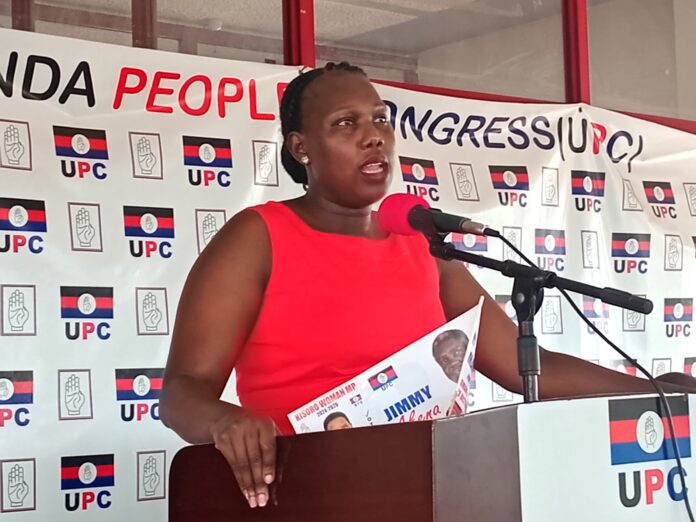The Uganda People’s Congress (UPC) party has condemned the exaggeration of the 2021-2026 National Resistance Movement (NRM) manifesto implementation by the government officials participating in the ongoing manifesto week 2024 at the President Conference Centre in Kampala.
According to Sharon Oyat, the UPC party spokesperson, 84% of the manifesto implementation lacks transparency, as it appears to be unrealistic based on the continued manifestation of high rates of unemployment among the youth, poor infrastructure, a poor education system, and poor healthcare in the country.
“UPC observes with great concern that we are still lagging behind in the creation of wealth and jobs as a country. Most of our energetic youths, who cover over 70% of the national population, are roaming the streets hunting for scarce job opportunities, while others find their way to Middle Eastern countries for unprofessional jobs where the majority of them have and continue to face difficult challenges that at times claim their lives,“ Oyat said.
Read Also: 84% of the NRM Manifesto Done or in Working progress—Bashasha
While addressing the press on Wednesday, November 20, 2024, at the UPC party headquarters at Uganda House in Kampala, Oyat added that UPC is in a disagreement with the NRM government’s strategy on how best to usher in the highly drummed-up socio-economic transformation, which demands proper planning and implementation after identifying the key productive areas.
“Certainly, it requires a strong foundation or infrastructure by which to build on. However, this strong foundation or infrastructure was dismantled by the NRM-led government when they moved in the late 1980s and 1990s to fully embrace the neo-liberal policies that ushered in a private sector-driven economy,” she said.
Read Also: Uganda’s Manifesto Week to Promote Transparency, Citizen Engagement
However, in the ongoing Manifesto implementation week, reports from the ministries, departments, and agencies indicate that there has been a significant change in the growth of Uganda’s economy as the implementation of the NRM manifesto continues to unfold.
According to Dr. Chris Baryomunsi, the Minister for ICT and National Guidance, the NRM government in Uganda has achieved several notable accomplishments since coming to power in 1986, including economic growth, where Uganda’s economy has shown stable growth with an average increase of 6.1% each year. The economy has expanded from UGX 14.4 trillion (about US$3.9 billion) in 1986 to UGX 128.5 trillion (about US$34.7 billion) today.
Others include GDP growth, where in 2023, Uganda’s economy grew by 4.6%, down from 6.3% in 2022. While sectors like mining, construction, and hospitality performed well, a decline in manufacturing and food production slowed overall growth, inflation control, and revenue growth, among others.
The NRM’s commitment during this manifesto week highlights the progress Uganda has made and its ongoing journey toward a prosperous future. With continued efforts and strategic planning, Uganda aims to achieve its vision of becoming a modern and industrialized society by 2040.















